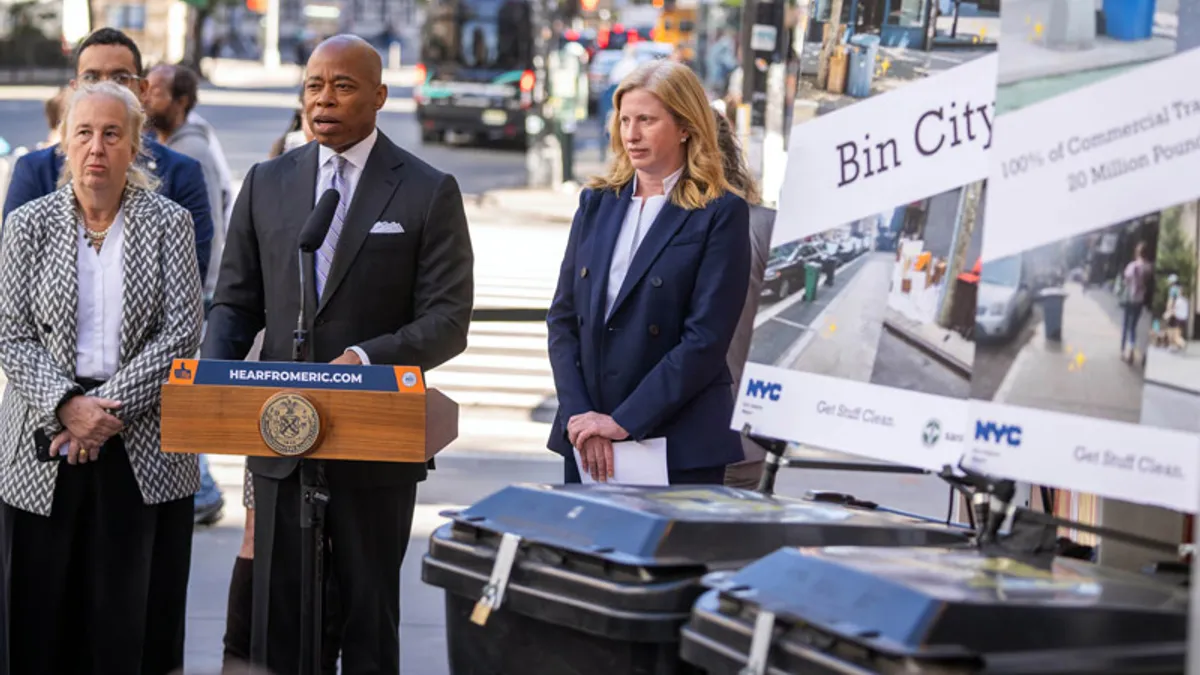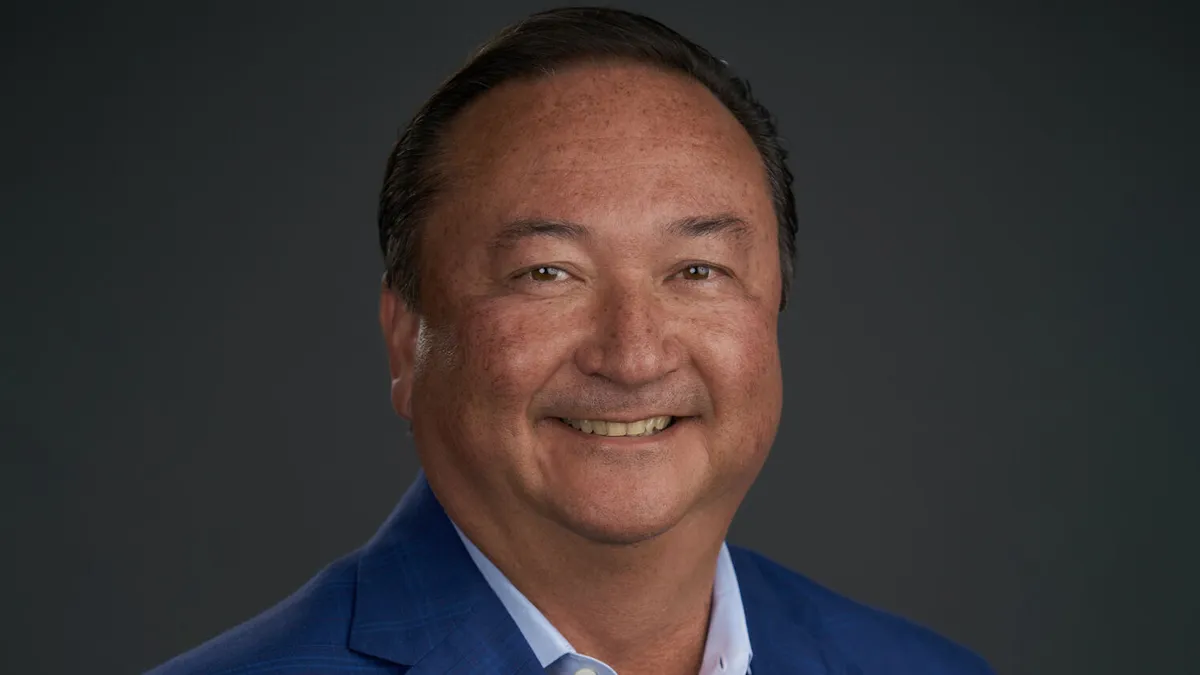Ripple effects from a notable acquisition in New York continue to play out, as the city’s Department of Sanitation faces pressure to move quicker on implementing a commercial waste zone system five years after it became law.
The system will replace a longstanding open market in the city by dividing it into 20 non-exclusive zones, with three haulers each, plus five contracts for citywide container service. DSNY announced 65 contracts in January, but that list of awardees has already begun to shift due to acquisitions.
DSNY signaled in a Wednesday council hearing that it could award two new contracts to unspecified companies, following gaps created by Waste Connections’ recent acquisition of fellow awardee Royal Waste Services.
“We remain steadfast in our commitment that there must be three carters per zone and that no carter may have more than 15 zones, including via subsidiaries, in order to maintain necessary market competition and keep prices down,” said DSNY Commissioner Jessica Tisch in prepared testimony. “In the case of current consolidation already underway that may necessitate a new award, we plan to use the existing RFP documents given their recency and continued relevance. In the future, as time goes on, that may change and new bids may be necessary.”
Waste Connections and Royal overlapped in one zone, and the deal also put the company over the city’s 15-zone limit. The changes leave the potential for one new awardee each in the zones of Queens West and Brooklyn Southwest.
Joint venture shift
Another consequence of the deal, which hadn’t been previously reported, was that Royal exited the New York Recycling Solutions joint venture it formed with fellow awardee Cogent Waste Solutions to bid on zone contracts. NYRS was awarded two zones.
A public records request to the city’s Business Integrity Commission, which licenses commercial waste haulers, confirmed that ownership changed at NYRS ahead of Royal’s sale to Waste Connections. An August update submitted to BIC listed Cogent as owning 50% of NYRS, with Nino and Anthony Tristani also owning 25% each. The Tristanis are the founders of Cogent and also are listed as vice presidents of NYRS.
Cogent and its affiliates now effectively have contracts in six zones, putting it in fourth place for the most contracts. Waste Connections has the most, with 15 zones plus one citywide contract, followed by Interstate Waste Services subsidiary Action Environmental, with 14 zones and one citywide contract. A joint venture between Mr. T Carting and Boro-Wide Recycling is in third, with six zones and one citywide contract.
Cogent has faced scrutiny for a range of alleged violations and prior issues, leading DSNY to appoint an independent monitor at the company and at NYRS earlier this year. That monitor remains in place.
A long-awaited rollout
The waste zone system was created when then-Mayor Bill de Blasio signed Local Law 199 on Nov. 20, 2019. The pandemic, among other factors, played a part in delaying the system rollout. DSNY has only announced implementation timing for one zone, Queens Central, spurring pushback from groups who feel Mayor Eric Adams’ administration is not moving quickly enough.
Transform Don’t Trash, a coalition of labor and environmental groups that supported the law’s passage, called for the city to speed up its process in a Wednesday release. The group also requested that DSNY publish awardees’ plans for safety and facility usage, and it raised concerns about truck traffic going to private transfer stations in environmental justice areas.
“We need to get this city’s private waste collection industry under control,” said Brooklyn Borough President Antonio Reynoso, who was the bill’s primary sponsor when he served as a council member, in a statement. “The sooner the CWZ program is rolled out citywide, the sooner we can measure its efficacy and make any changes we need to better deliver on the program’s promises.”
Haulers are expected to meet a range of environmental, safety and technology requirements to operate in this system. Proponents want implementation to advance faster to realize more of their goals for the program.
“Although it’s been five years since New York City passed the landmark Commercial Waste Zones law, this administration is still lagging behind on implementation — even as the urgency of issues caused by private waste collection is reaching a tipping point,” said Council Member Sandy Nurse in a statement. “These companies must be held responsible for their role in holding our city back from meeting critical climate goals and the much needed reform to our sanitation system.”
The Queens Central transition began in September. DSNY worked with other agencies to create a registry of approximately 12,000 customers that could be affected. According to minutes from an Oct. 8 safety task force meeting, an outreach team engaged with an estimated 8,000 businesses in person over the summer. This outreach team is continuing to engage with the remaining 4,000 businesses that couldn’t be reached.
On Wednesday, Tisch said that DSNY will gain “significant new enforcement capabilities” once that zone is fully implemented. In the meantime, as implementation continues, DSNY enforcement personnel already have issued 114 summonses to commercial carters in Queens Central “for everything from safety violations to offenses against basic cleanliness.”
Starting in January, all customers in Queens Central will need to have a contract with one of the approved haulers in that zone. DSNY previously said it expects to announce the timing of further zone rollouts after this initial transition is complete.























